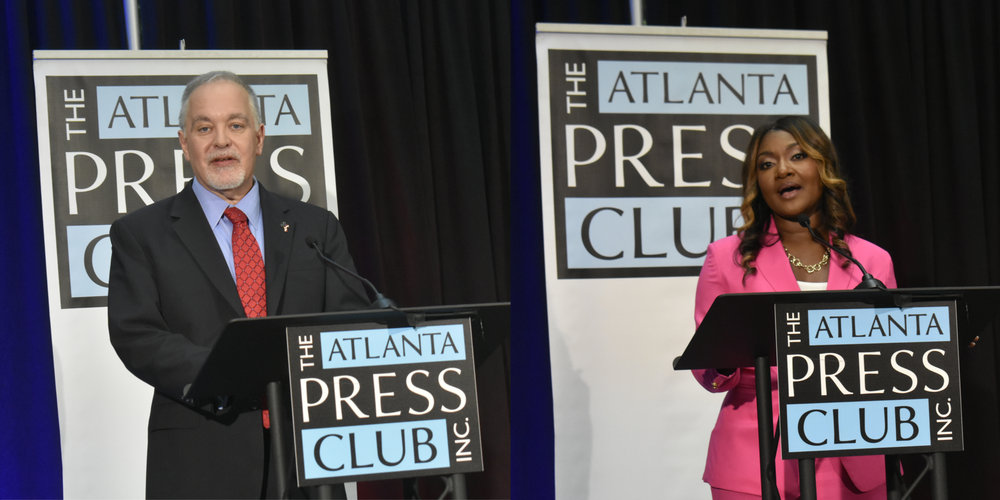
Caption
State School Superintendent Richard Woods (left) and Democratic candidate Alisha Thomas-Searcy (right) two made their cases for why they should lead Georgia’s public schools in a debate Oct. 17, 2022.
Credit: Ross Williams / Georgia Recorder

